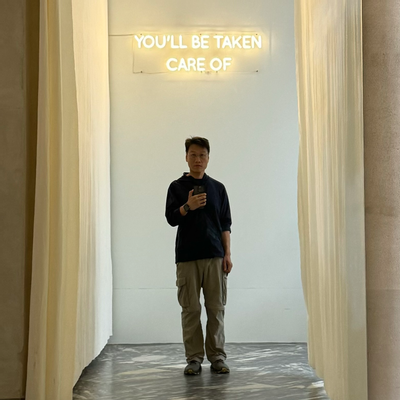你是否曾經想過,為什麼有些關係能在時間的洗禮下愈發堅固,而另一些卻如同沙漏般,一點一滴流逝殆盡?我也曾在工作與人生的交錯中,看見許多人在衝突與壓力下逐漸失去原本的初心。婚姻,不只是兩個人的相處,它像是一座實驗室,測試著我們的耐心、智慧與養生的態度。當爭執成為常態,身心的負擔也會悄然累積;而當懂得回應、欣賞與妥協,和諧的能量便能反過來滋養我們的生命。最終我們會明白:婚姻不是要尋找一個沒有問題的人,而是找到一個願意與你一起面對問題、並依然選擇相伴的人。
今天介紹『The Seven Principles for Making Marriage Work』一書,它是美國心理學家約翰・高特曼(John M. Gottman)所著的經典作品,他以科學研究為基礎,透過長期的婚姻實驗室觀察,提出七項能夠幫助夫妻經營幸福婚姻的原則。本書的特色是結合實證心理學與生活化練習,內容不僅探討衝突與爭執的解決方式,也著重於如何建立理解、尊重與親密感。它用簡單、實際的方式,讓伴侶們能在日常生活中一步步改善互動,避免陷入負面循環,被譽為婚姻輔導的指標性作品。
作者約翰・高特曼是華盛頓大學心理學名譽教授,被譽為「愛情博士」,也是高特曼研究所(The Gottman Institute)的共同創辦人。他擅長透過觀察夫妻互動中的細微表情、語調與行為模式,準確預測婚姻成敗率。他的研究長期以嚴謹實驗與數據為基礎,影響了全球的婚姻輔導與心理治療領域。他與妻子朱莉・高特曼(Julie Schwartz Gottman)共同推廣「高特曼方法」(Gottman Method),將科學轉化為實際工具,幫助無數伴侶修復關係、增進親密度。以下摘要書中重點與您分享:
Our goal was nothing more ambitious than to uncover the truth about marriage—to finally answer the questions that have puzzled people for so long: Why is marriage so tough at times? Why do some lifelong relationships click, while others just tick away like a time bomb? And how can you prevent a marriage from going bad—or rescue one that is already in trouble?

我們的目標不過是揭開婚姻的真相—終究要解答那些困擾人們許久的問題:為何婚姻有時如此艱難?為何有些終生伴侶情投意合,另一有些卻像定時炸彈般滴答作響?又該如何避免婚姻走向崩壞—或挽救已陷入危機的婚姻?
西雅圖愛情實驗室的終極目標是揭示婚姻的真相,解答人們長久以來的困惑:婚姻為何時而艱難?為何有些關係穩定而有些卻充滿危機?研究致力於探尋如何預防婚姻走向破裂,以及如何有效地挽救已陷入困境的關係,旨在為親密關係提供科學且實用的指引。
Usually people stonewall as a protection against feeling psychologically and physically overwhelmed, a sensation we call flooding. It occurs when your spouse’s negativity is so intense that it leaves you shell-shocked. Confronted with such a sniper attack, you learn to do whatever you can to avoid a recurrence.

人們通常會採取冷戰策略,以防心理與生理承受不住壓倒性的情緒衝擊—這種狀態稱為「情緒淹沒」。當伴侶的負面情緒突然爆發且強度過高,便會引發這種震驚反應。面對這般狙擊式攻擊,你會感到無力招架,進而學會竭盡所能避免重蹈覆轍。
「情緒淹沒」是個體在面對伴侶強烈負面情緒時,身心感到極度壓倒性的防禦反應,導致採取冷戰。這種狀態下,個體會因感到震驚而無力應對,進而學習避免再次遭受類似情緒攻擊。情緒淹沒嚴重阻礙有效溝通,是婚姻關係陷入困境的重要警訊。
When we monitor couples for bodily changes during a tense discussion, we can see just how physically distressing flooding is. One of the most apparent of these physical reactions is that the heart speeds up—pounding away at more than 100 beats per minute—even as high as 165. Hormonal changes occur, too, including the secretion of adrenaline, which kicks in the “fight or flight response.” Blood pressure also mounts. These changes are so dramatic that if one partner is frequently flooded during marital discussions, it’s easy to predict that, unless the dynamic between them changes, they will end up divorced.

當我們監測伴侶在激烈爭執中的身體變化時,便能清楚看見情緒洪流對身體造成的巨大衝擊。最顯著的生理反應之一是心跳加速—每分鐘超過 100 次,甚至高達 165 次。荷爾蒙變化亦隨之發生,包括分泌腎上腺素觸發「戰或逃反應」,血壓同時攀升。這些變化如此劇烈,若伴侶在婚姻爭執中頻繁陷入情緒洪流,除非兩人互動模式改變,否則極可能走向離婚結局。
激烈爭執中的「情緒淹沒」會引發顯著的生理壓力反應,如心跳加速(可達165次/分)、腎上腺素分泌增加及血壓升高,觸發「戰或逃」機制。若伴侶頻繁經歷此類生理衝擊,是婚姻瀕臨瓦解的強烈預兆。除非互動模式改變,否則離婚幾乎是必然的結局。
In 85 percent of heterosexual marriages, the stonewaller is the husband. This is not because of some lack on the man’s part. The reason lies in our evolutionary heritage. Anthropological evidence suggests that we evolved from species in which the male’s physiology was more attuned to the perception of threat, so men became more easily flooded than women.

在 85%的異性戀婚姻中,採取冷戰態度的是丈夫。這並非因為男性有何不足,原因在於我們的演化遺產。人類學證據顯示,我們是從雄性生理更能感知威脅的物種演化而來,因此男性比女性更容易情緒淹沒。
在異性戀婚姻中,丈夫更容易成為冷戰者(佔85%),這並非其個人缺陷。研究指出,這源於人類演化遺產,雄性生理對威脅的感知更敏銳,導致男性在衝突中比女性更容易陷入「情緒淹沒」。這種生理差異解釋了兩性在應對衝突時的行為模式差異。
Compared to other couples, emotionally intelligent couples are intimately acquainted with each other’s world. I call this having a richly detailed love map—my term for that part of your brain where you store all the relevant information about your partner’s life. In other words, these couples have put a lot of cognitive room aside for their marriage. They remember the major events in each other’s history, and they keep updating their information as the facts and feelings of their spouse’s world change.

相較之下,高情商伴侶對彼此的生活世界瞭若指掌。我稱之為擁有豐富詳盡的愛情地圖—這是我對大腦中儲存伴侶生活相關資訊區域的稱謂。換言之,這些伴侶為婚姻預留了充裕的認知空間。他們記得對方人生中的重大事件,並隨著配偶生活中的事實與感受變化持續更新資訊。
情緒智商高的伴侶擁有詳細的「愛情地圖」,即在大腦中為伴侶的世界保留了大量認知空間。他們不僅記得彼此人生中的重大事件,還會隨著時間推移不斷更新這些資訊,深入了解伴侶的喜好、憂慮、夢想和個性。這種親密了解是維繫關係、應對壓力的關鍵。
If your fondness and admiration have completely died, your marriage is in severe trouble. Without a basic sense that your spouse is worthy of honor and respect, what foundation is left for any rich relationship? Yet when fondness and admiration have faded to just a faint glimmer, it is still possible to rekindle them. At that point, the key to reviving fondness and admiration is to make it a habit to notice what your partner is doing right and then offer a genuine appreciation like “I love the way you handled the teacher conference yesterday” or “Thanks for making my sister feel welcome here” or even “You look so hot in that outfit, I’m having all kinds of bad thoughts.”

若彼此的愛慕與敬重已徹底熄滅,婚姻便陷入嚴重危機。若缺乏「配偶值得尊敬」的根本信念,任何豐盛關係的基礎又何在?然而,當愛慕與敬重消退至幾不可察的程度時,仍有可能重燃這份情感。此時,重振愛慕與敬重的關鍵在於養成習慣:主動發掘值得欣賞的特質與行為,並向伴侶表達你所觀察到的點滴與感激之情。
當婚姻中愛慕與敬重消逝時,關係會面臨嚴重危機。然而,即使情感微弱,仍有機會重燃。關鍵在於養成習慣:主動觀察伴侶做得對的地方,並真誠表達欣賞與感激,無論是日常小事或重要舉動。這不僅能重建尊重基礎,更能將關係導向正向循環。
Our research has confirmed the centrality of “bids” in a relationship. In a six-year follow-up study of newlyweds, we found that couples who remained married turned toward each other’s bids an average of 86 percent of the time, whereas those who eventually divorced turned toward each other an average of only 33 percent of the time. Significantly, most arguments between the two groups were not about concrete issues like money or sex but about these unresponded-to requests for connection.

我們的研究證實了「示愛」在關係中的核心作用。在對新婚夫婦進行的六年追蹤研究中,我們發現維持婚姻的伴侶在「愛情實驗室」中平均有 86%的時間回應了對方的示愛,而最終離婚的伴侶平均僅有 33%。值得注意的是,兩組伴侶間多數爭執並非源於金錢或性等具體議題,而是因這些建立連結的請求未獲回應所致。
研究顯示,「示愛」在親密關係中扮演核心角色。維持婚姻的伴侶平均86%時間會回應對方的連結請求,而離婚者僅33%。多數爭執非關金錢或性,而是源於這些示愛未獲回應。這表明日常互動中積極「轉向彼此」、回應伴侶的連結需求,對維繫婚姻穩固與情感連結至關重要。
In our long-term study of 130 newlywed couples, whom we followed for nine years, we found that, even in the first few months of marriage, men who allowed their wives to influence them had happier relationships and were less likely to eventually divorce than men who resisted their wives’ influence. Statistically speaking, when a man is not willing to share power with his partner there is an 81 percent chance that his marriage will self-destruct.

在我們對 130 對新婚夫婦進行的九年長期追蹤研究中發現,即使在婚後最初幾個月,那些願意讓妻子影響自己的男性,其婚姻關係更幸福,最終離婚的可能性也低於抗拒妻子影響的男性。從統計學角度而言,當男性不願與伴侶分享權力時,其婚姻有 81%的機率會走向自我毀滅。
一項針對新婚夫婦的九年研究顯示,願意接受妻子影響的男性,其婚姻關係更幸福,離婚率更低。反之,若男性不願與伴侶分享權力,婚姻自我毀滅的機率高達81%。這強調了在婚姻中,男性接納女性影響力對建立穩定、幸福關係至關重要。
These couples intuitively understand that some difficulties are inevitable, much the way chronic physical ailments are unavoidable as you get older. They are like a trick knee, a bad back, an irritable bowel, or tennis elbow. We may not enjoy having these problems, but we are able to cope by avoiding situations that worsen them, and by developing strategies and routines that help ease them. Psychologist Dan Wile said it best in his book Aer the Honeymoon: “When choosing a long-term partner … you will inevitably be choosing a particular set of unsolvable problems that you’ll be grappling with for the next ten, twenty, or fiy years.” Marriages are successful to the degree that the problems you choose are ones you can cope with.

這些伴侶直覺地明白,某些困難是無可避免的,就像隨著年歲增長,慢性身體不適終將如影隨形。它們如同膝蓋不穩、腰背疼痛、腸躁症或網球肘。我們或許不樂見這些問題,但能透過避開加劇症狀的狀況,並發展緩解不適的策略與日常習慣來應對。心理學家丹·威爾在其著作『蜜月之後』中精闢指出:「選擇終身伴侶時⋯⋯你必然會選擇一套特定的無解難題,並在未來十、二十甚至五十年持續與之搏鬥。」婚姻的成功程度,取決於你所選擇的難題是否在可應對範圍內。
婚姻中存在「可解決」與「永恆性」兩類衝突。成功的伴侶理解某些困難是無可避免的,並非追求徹底解決,而是學會與之共存,透過發展應對策略來緩解問題。心理學家丹·威爾指出,選擇伴侶即是選擇一套無解難題,婚姻的成功在於選擇你能應對的問題。
To navigate your way out of gridlock, you have to first understand that no matter how seemingly insignificant the issue, gridlock is a sign that you each have dreams for your life that the other isn’t aware of, hasn’t acknowledged, or doesn’t respect. By dreams I mean the hopes, aspirations, and wishes that are part of your identity and give purpose and meaning to your life.

為突破僵局,你必須首先理解,無論問題看似多麼微不足道,僵局都象徵著雙方各自懷抱著對方未察覺、未認可或不尊重的生命夢想。我所指的夢想,是構成你身份認同、賦予生命宗旨與意義的希望、抱負與願望。
突破婚姻僵局的關鍵,在於理解這些看似微不足道的問題背後,隱藏著伴侶彼此未察覺、未認可或不尊重的生命夢想。這些夢想是個人身份、希望、抱負與生活意義的來源。僵局本質上是這些深層渴望未能被理解和尊重的體現,需要伴侶共同探索與面對。
If your marriage adheres to my first six principles, there’s a good chance that your relationship is stable and happy. But if you find yourself asking, “Is that all there is?” your situation may be similar to Helen and Kevin’s. What may be missing is a deeper sense of shared meaning. Marriage isn’t just about raising kids, splitting chores, and making love. It is about building a life together that has a shared inner landscape of meaning and purpose.

若您的婚姻能遵循我的前六項原則,關係很可能穩定而幸福。但若您發現自己會問:「就這樣嗎?」,那麼您的情況可能與海倫和凱文相似。可能缺失的是更深層次的共同意義。婚姻不僅是養育子女、分擔家務、親密行為,更是要共同構築一個擁有共享內在意義與宗旨的人生。
即使婚姻穩定,若伴侶感到空虛,可能源於缺乏深層的「共同意義」。婚姻不應僅限於養育子女、分擔家務或親密關係,更應是共同建構一個充滿共享意義與宗旨的人生。這包括共同的儀式、角色、目標及價值觀,透過這些連結,讓關係擁有更豐富的內在景觀。
Remember, working briefly on your marriage every day will do more for your health and longevity than working out at a health club.

請記住,每天花點時間經營婚姻,對健康與長壽的助益,遠勝於在健身俱樂部鍛鍊。
每天投入少許時間經營婚姻,對個人的身心健康與壽命長度,其效益遠遠超過在健身房鍛鍊。這將婚姻視為一種長期且深遠的健康投資,鼓勵伴侶透過日常的點滴付出,而非僅是偶爾的努力,來持續滋養和強化關係。
結語
本書提醒我們,婚姻並非只是情感的連結,更是身心「養生」的重要基石。當爭執與「情緒淹沒」頻繁出現,不僅破壞彼此的溝通,也會帶來心跳加速、血壓升高等嚴重生理負擔,長期下來就如同慢性病般損害健康。學會和伴侶建立「愛情地圖」、主動回應對方的連結需求,以及保持欣賞與尊重,能降低衝突帶來的壓力,讓心靈回歸「和諧」狀態。這不僅是心理上的安定,更是預防疾病、延長壽命的關鍵養生之道。
另一方面,文章強調婚姻的核心在於「共同意義」的培養。即使有無解的問題或生活中的不完美,只要伴侶懂得妥協、寬容,並攜手面對,就能將關係化為一種和諧的長期練習。這種日常的用心經營,比單純健身更能滋養我們的心靈與身體,因為愛與理解能調節壓力荷爾蒙、穩定情緒。最終,婚姻成為一種深層的養生實踐:透過和諧互動與共同目標,讓彼此的心靈與身體在相互支持中保持健康與長壽。
















